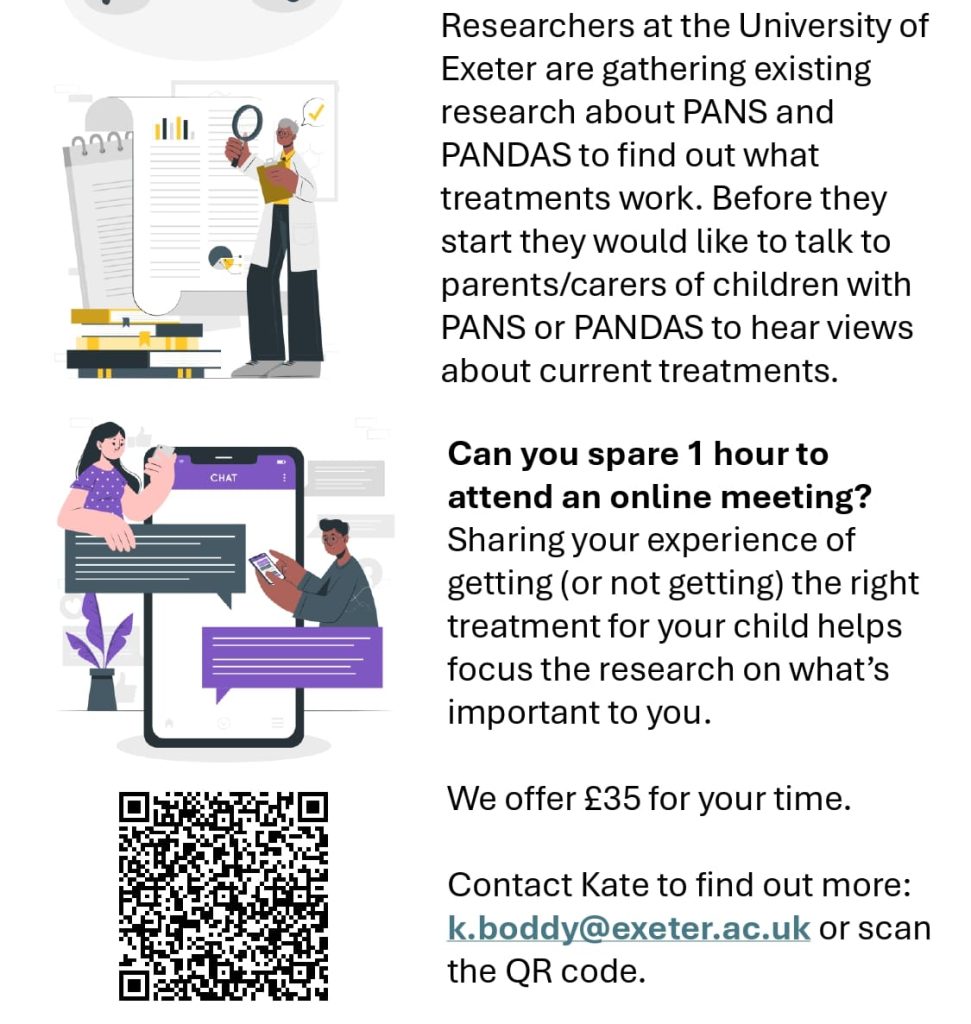NIHR to undertake evidence synthesis for PANS and PANDAS
PANS PANDAS UK and the PANS PANDAS Steering Group are pleased to announce that work will commence shortly on an evidence synthesis for PANS and PANDAS, with particular emphasis on treatment.
Collating and analysing evidence from existing research in this way will enable policy makers to identify gaps in current knowledge about the conditions. These findings will positively impact decision-making, patient and client care, reducing inequalities and identifying future research needs. Parents and carers of young people with PANS and PANDAS can help to shape this project in its early stages by sharing their experience with researchers.
Following a series of discussions with NHS England and the National Institute for Health and Care Research (NIHR), it has been agreed that this work is an important first step towards further research and improved care for people living with PANS and PANDAS.”
Katy Hindson, Health Policy Lead, PANS PANDAS UK


Find out more:
What is an evidence synthesis?
Evidence syntheses combine information from multiple sources, most commonly from existing research studies, to provide an overall summary of current knowledge. You can find out more about the NIHR Evidence Synthesis Programme here.
What will happen as a result of this evidence synthesis?
The evidence synthesis will identify any gaps in knowledge, particularly regarding which treatments are most effective. This information will help researchers prioritise future research projects and will inform any future applications for NIHR funding.
Who is funding this work?
The Evidence Synthesis Programme is funded by the NIHR, with contributions from the Chief Scientist Office (CSO) in Scotland, Health and Care Research Wales, and the HSC R&D Division, Public Health Agency in Northern Ireland.
The evidence synthesis for PANS and PANDAS is being undertaken by the NIHR Evidence Synthesis Group at the University of Exeter.
How long will it take?
It is anticipated that this piece of work will take 6-9 months.
How can I support this project?
There is an opportunity for a small number of parents and carers of children who have PANS or PANDAS to get involved in the early stages of this project. Researchers at the University of Exeter would like to talk to parents/carers of children with PANS or PANDAS to hear their views about current treatments.
By attending a one hour online meeting to share your experience of getting (or not getting) the right treatment for your child, you will help focus the research on what matters the most to families.
Contact Kate Boddy, from the Patient and Public Involvement Team at the University of Exeter to find out more: k.boddy@exeter.ac.uk.

